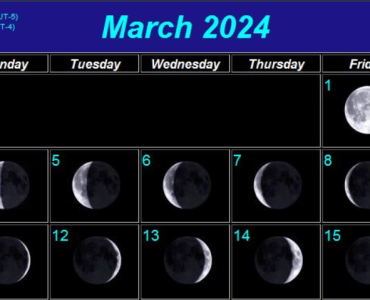Traditional Islamic opinions regard Islam as a religion that is different than and distinct from previous revelations. The Qur’an, however, names Itself as a “Book confirming the previous ones and completing the religion”. Islam, literally, submission to God, is the only religion that has been communicated to all prophets from Adam (pbuh) to Muhammad (pbuh):
“The religion in the sight of God is Islam.” (Al-e Imran 3:19)
This Quranic verse is mostly and wrongly interpreted as if Islam is the religion brought by Muhammad, all other beliefs before it had different names, and this verse does not recognize any of the previous religions. To refute this false opinion, the following verses suffice:
“(O Muhammad!) Say: ‘We have trusted in God. We have trusted in what has been sent down to us and what was sent down to Abraham, Ishmael, Isaac, Jacob, and his descendants. We have believed in what was granted to Moses and Jesus, and whatever was granted to prophets by their Master. We make no distinction between any of them. We have submitted ourselves to God. (Nahnu lahu Muslimun)’” (al-Baqarah 2:136)
“Do you say that Abraham, Ishmael, Isaac, Jacob, and their descendants were Jews or Christians? Say (to them): ‘Do you know better, or does God?’ Who is more wrong-doing than he who conceals a truth which has been shown to him by God? God is never heedless of what you are doing.”(al-Baqarah 2:140)
“Moses said to his people: ‘Oh my nation! Rely on God only if you have trusted in Him and submitted yourselves to Him (in kuntum Muslimeen)'”(Jonah 10:84)
THE QUR’AN ATTESTS CONFIRMATION TO PREVIOUS DIVINE BOOKS:
To avoid confusion of names and notions, we first have to make the following explanation:
The English word “Torah” and the Hebrew word “Tora= תּוֹרָה” refer to the first five books of the Old Testament, whereas the Arabic word “Taurat = توراة ” mentioned in the Qur’an, refers to the complete Old Testament, or in its Hebrew name: “Tanakh = תַּנַ”ךְ”. Therefore, the word “Torah” in the following English translations of verses, refers to the Tanakh.
The Arabic word “Injeel = إنجيل” mentioned in the Qur’an refers to “Gospel” in English, or in its Greek name: “Evangelion = εὐαγγέλιον”.
The Qur’an does not deny or disregard the previous Scriptures but attests confirmation to them:
“(O Muhammad!) He has sent down to you the Book including the whole truth and confirming the previous ones. He had also sent down the Torah and the Gospel.” (Al-e Imran 3:3)
“God has legislated for you the religion which He enjoined upon Noah. (Oh, Muhammad!) That which God has sent down to you, and that which He enjoined upon Abraham, Moses, and Jesus is: “Keep up this religion, and therein do not separate or divide”.” (Ash-Shura 42:13)
The following narration from Muhammad (a.s.) summarizes what Islam is and for which purpose Prophet Muhammad was sent:
“Jabir reported Messenger Muhammad (ﷺ) as saying: The similitude of mine and that of the previous Prophets (nabi) is like that of a person who built a house and he completed it and made it perfect but for the space of a brick. People entered therein and they were surprised at it and said: Had there been a brick (it would have been complete in all respects). Allah’s Messenger (ﷺ) said: I am that place where the brick (completing the building) is to be placed, and I have come to finalize the chain of Prophets (Nabi).” (Sahih Muslim, The Book of Virtues, 2287 a)
THE GOSPEL IS BASED ON THE TORAH, AND JESUS (PBUH) FULFILLS THE TORAH:
God taught Jesus both the Torah and the Gospel because Jesus was also sent to confirm and fulfill the previous law of God:
“Mary said: “Oh my Master! How come I have a child, while no man has touched me?” God said: “Yes it is true (but). God creates whatever He prefers. When He decreed a matter, He merely says, “Be!”, and it comes into existence. He (God) will teach Him (Jesus) the Book and the Wisdom, the Torah and the Gospel.“ (Al-e Imran 3:47-48)
The same principle is mentioned also in the Gospel of Matthew. Jesus (pbuh) said:
“Think not that I have come to abolish the law and the prophets; I have come not to abolish them but to fulfill them.
For truly, I say to you, till heaven and earth pass away, not an iota, not a dot, will pass from the law until all is accomplished.
Whoever then relaxes one of the least of these commandments and teaches men so, shall be called least in the kingdom of heaven; but he who does them and teaches them shall be called great in the kingdom of heaven” (Matthew 5:17-19)
THE TORAH AND THE GOSPEL REQUIRE THEIR BELIEVERS TO COMPLY WITH THE QUR’AN:
All the prophets, except for the final Prophet Muhammad (pbuh), were prescribed to believe in and support the Prophet who would be sent after themselves. So, the chain of revelation would be completed through the efforts of the Apostles and the believers easily:
“When God took a covenant from each of the prophets, He said: “If I grant you Book and Wisdom, and then a messenger/Book[1] confirming what is with you comes to you, then you will surely believe in him/It and support him/It.” He (God) said: “Do you agree and accept this heavy burden? ” They said: “We accepted.” God said: “Bear witness to this! I am also a witness with you!”” (Al-e Imran 3:81)
The Children of Israel are warned that they have to keep the commitment of believing the divine Books that confirm their Scripture. Otherwise, God will not keep His commitment to blessing them and making them the inheritors of the place He had promised in the Torah:
“Oh, Children of Israel! Keep in mind the blessings that I bestowed upon you. Keep the commitment you have made to Me so that I shall keep My commitment to you. Fear Me alone!
Believe in what I have sent down (the Quran) which is confirmative of what is with you (the previous Scriptures). Do not be the first of those who ignore It! Do not sell My verses for a trivial gain. Refrain from doing wrong regarding Me! ” (The Quran 2:40-41)
When the final Prophet of God came, the heavy burden of believing the next messenger has been dismissed forever. The Qur’an includes alleviations in several judicial and daily life issues of believers:
“They (those who trust God’s verses) are the ones who follow this scripturally illiterate[1] Prophet Messenger whose description they find in the Torah and the Gospel with them. That Messenger commands them to do good acts and forbids them from improper conduct. He legitimizes the things which are clean and makes unlawful the things that are unclean. He casts off their burden (the responsibility of trusting and supporting the next Messenger) and the shackles upon them. Those who believe in him, support him, help him and follow the light (Book) sent down with him, are the ones who will achieve what they hope” (Al-A’raf 7:157)
THE QURAN FULFILLS THE PROMISES THAT GOD HAS MADE IN THE TORAH AND THE GOSPEL:
Those who were granted divine Scriptures before the Qur’an have clear references in their Books to the qualities of the forthcoming Book, the Messenger, and his acts. So, they could easily recognize the final Book which confirms the Scriptures in their hands:
“Say, ‘Whether you believe It (the Qur’an) or not, those who were given knowledge (od Scriptures) before It fall down on their faces when It is recited to them, and say, “Glory to our Master! Our Master’s promise has been fulfilled.” They fall down on their faces, weeping, and It (the Quran) increases their respect.'” (al-Isra 17:107-109)
For example, the Gospel has a section in it which shows that the direction of prayer would be changed from Jerusalem to another direction:
““Sir,” the woman said, “I can see that you are a prophet. Our ancestors worshiped on this mountain, but you Jews claim that the place where we must worship is in Jerusalem.” “Woman,” Jesus replied, “believe me, a time is coming when you will worship the Father neither on this mountain nor in Jerusalem.” (John 4:19-21)
This important change has indeed occurred through the revelation of the Qur’an. God has thus differentiated between those who believed and supported His final Prophet and those who denied him as well as the revelation he brought:
“Thus, We have made you a community at the center (of the civilizations) so that you may be a good example for the people and that the Messenger/ what he brought to you as a messenger be with you. We have established the direction of prayer (Bayt al-Maqdis), which you currently turn, only in order to know those who follow this Book/Messenger and those who turn their backs on It. Indeed, changing the direction of prayer is deemed difficult, except by those who are approved by God to be rightly guided. God will never let your faith (about redirection to Sacred Mosque) go to waste. God is compassionate and beneficent towards mankind.
(Oh, Prophet!) We see that you frequently turn your face towards the heavens (expecting new revelation). We will certainly make you turn towards the prayer direction that you will be content with. From now on, turn your face towards the region of the Sacred Mosque! (Oh, you who believe) wherever you are, turn your faces towards that region (during the prayer) too. Those who were granted the Book know well that it is the truth from their Master. What they are doing does not escape God’s attention.” (al-Baqarah 2:143-144)
THE QUR’AN, AS THE FINAL LINK OF THE CHAIN OF ISLAM:
Qur’an is the final divine Book that completes the revelation chain of the religion established by God, the religion that is always based on submission to God, namely Islam:
“(Oh you who trust in God!)… Today I have perfected your religion for you, completed My blessing upon you, and consented to Islam (total submission to God) as your religion.” (al-Maedah 5:3)
Further reading about the relations of divine Books with each other can be found on the links below:
http://www.islamandquran.org/research/are-the-torah-and-the-gospel-corrupted.html
http://www.islamandquran.org/research/abrogation-and-punishment-of-stoning.html
[1] The word “rasul = رسول” mentioned in the verse means both “information that is sent” and “the messenger who delivers the sent information” (Mufradat, art. رسل). The information is of higher worth than the messenger, and therefore the Almighty God has decreed: “Muhammad is only a messenger. Messengers have passed on before him. If he dies or gets killed, will you turn about on your heels?” (Al-e Imran 3:144). The information that the Messenger Muhammad (pbuh) brought is gathered in the Quran, and the “rasul” is the Quran Itself, becoming so after his death. Therefore, depending on the context, the word “rasul” is assigned the meaning “the Book of God” within this work, as well as “the Messenger of God”.








Add comment